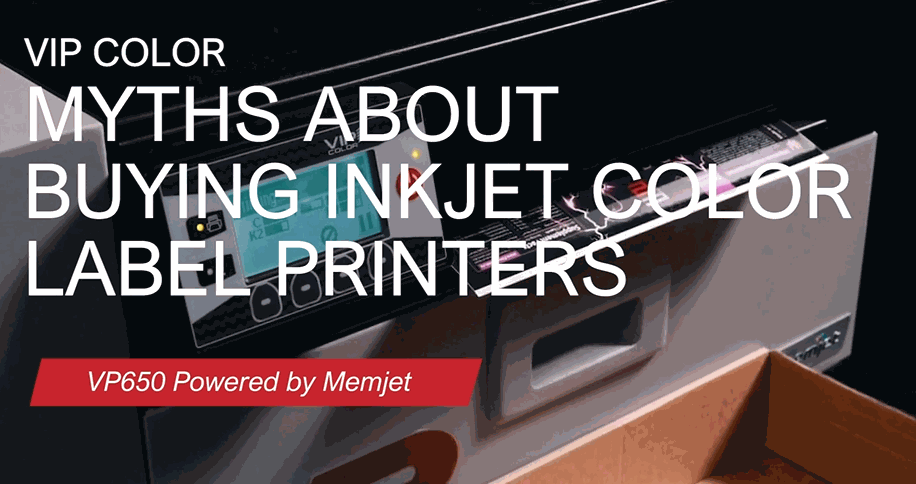#1 Inkjet Printing is Slow.
Many desktop inkjet printers use a moving (or scanning) printhead system with a printhead that is considerably smaller than the width of the media being printed.
In a moving printhead system, the speed is greatly reduced because the printhead (pictured on the left side of the illustration) needs to move across the width of the media in multiple passes to cover the entire page and requires both the printhead and the media to move.
The VIP Color VP Series printers Powered by Memjet are built based on a fixed printhead technology system. The printhead remains stationary while the media passes underneath at high speed during printing. This is a fixed printhead system or referred to as page-wide, single-pass printing.
It can achieve print speed of up to 12 inches per second on a page width of 8.5 inches without slowing down – that’s 60 pages of document-size labels in one minute or 1,000 of 6”x4” labels in less than 10 minutes.
Besides improving print speed performance, the printhead’s fixed architecture also reduces the noise, vibration, and mechanical complexity associated with other traditional inkjet architectures that shuttle the printhead back and forth across the width of the media.
#2 Inkjet is Expensive.
When evaluating the printing costs of inkjet, it is best to evaluate the full impact of both the print and non-print related costs like electricity, labor, waste/spoilage and the environmental effects of those costs that could undermine your sustainability efforts.
The VersaPass water-based dye inks used in VIP Color VP Series print solutions are finely tuned to jet with extremely high reliability throughout the life of the printhead, while also providing consistently high-quality output on a range of media.
The formulation also contributes to excellent drop formation within the printhead and controlled drop spread and fast dry-time on media without requiring additional drying or curing steps.
This high reliability and quality enable affordable printing through reduced downtime and waste, as well as a competitive cost per page.
The VIP Color VP Series print solutions include a built-in cost calculator that allows users to view data about the ink cost per label. As shown in the video, the ink cost is .02 cents per label – and that is the same for one label to 1,000 labels.
When you consider the overall cost of a printed label, most of it comes from the media substrate cost itself. It is best to understand the types of label stock that best fits your packaging design.
#3 Dye Ink is Not Water-Resistant or Aqueous Inks are Not Water-resistant
VersaPass inks are water-based and use dyes as colorants. The dyes are water-soluble and impart high color strength, allowing for reliable and efficient printing of color.
Since dyes are soluble in water, waterfastness can be an issue. However, if printed on specially designed media, Memjet’s VersaPass inks are waterfast. The video demonstrates a printed label generated with VersaPass inks on waterfast media submerged in water without ink bleed or migration.
Memjet VersaPass inks perform well on a variety of plain papers, as well as uncoated and coated medias that are designed for aqueous inkjet printing. Memjet’s VersaPass inks have exceptional lightfastness under various conditions, particularly when paired with appropriate media.
With a formulation comprised of ~70% water, Memjet VersaPass inks are free from toxic and reactive chemistries making them safer for the earth and for the people handling them – an essential differentiator for food packaging applications.


VIPColor Myths About InkJet Color